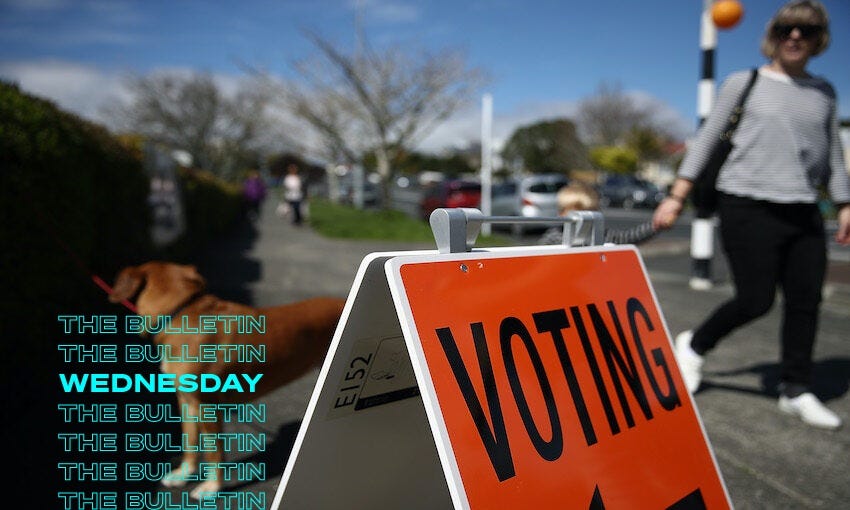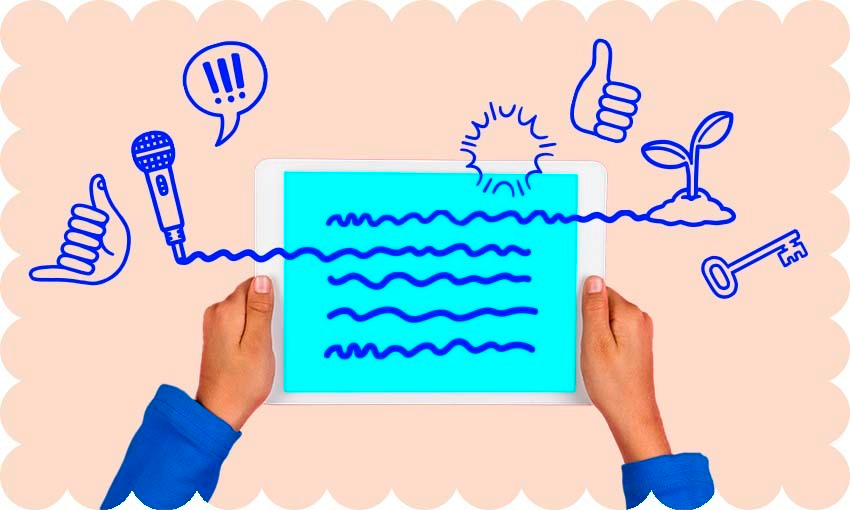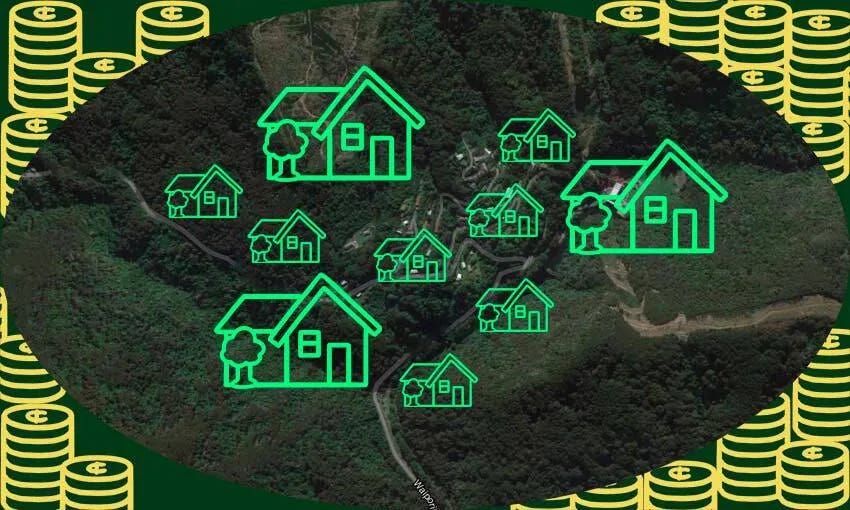Strengthening New Zealand's democracy
Some quick fixes are being considered for our system of political donations before the next election, so it’s clearer who is giving money to our politicians
Mōrena and welcome to The Bulletin for Wednesday, December 8, by Justin Giovannetti. Presented in partnership with Z Energy.
In today’s edition: Cabinet rejected health advice to reopen Auckland border; a 25 year strategy to end sexual violence; strike averted at KiwiRail; but first, patching up the country’s electoral finance system.
The country’s electoral finance rules are under the microscope. (Getty Images)
A temporary fix to one of the weak points in New Zealand’s democratic armour. The government quietly unveiled a series of proposals on Friday to overhaul the law covering political donations. Wealthy individuals, corporations and unions can donate unlimited amounts of money to political parties in New Zealand. Those parties are then governed by restrictions on how much advertising they can buy, but that’s about it. “We have, by international standards, pretty lax controls,” says University of Otago law professor Andrew Geddis.
One of the few current rules is that party donations above $15,000 need to be disclosed to the electoral commission. Despite that, New Zealand First, Labour and National have all faced police investigations in recent years after it appeared donors tried to get around the disclosure requirement. Geddis spoke with The Bulletin about what’s now being proposed.
It’s a small tinkering of the rules. The thing about electoral financing is that it’s not a particularly exciting or glamorous part of politics, until it is. The countries that have strict rules on donations—many of them are New Zealand’s friends—only got them after abuse and scandal. New Zealand has never had that moment of outrage, and with new rules, that moment might never come. The justice ministry is now proposing to lower the disclosure threshold for parties to $1,500, increase the frequency of public reporting, disclose more about in-kind donations and possibly ban anonymous money in politics. That’s right, a party can accept money anonymously, not having any idea who gave it to them. Sam Sachdeva from Newsroom has also looked at how recent police investigations could have led to the proposed fix.
Geddis explains how the current rules were adopted a decade ago after a Labour-led overhaul of electoral financing in 2007 was poorly handled.
“The rules we’ve got in place at the moment came about through a political compromise that was reached because of the very poor process following how the earlier rules were brought in. Like many compromises, they represent the minimum that everyone was willing to accept”, he said. “It’s the minimum level of control necessary that the parties think need to be in place to placate the public.”
A larger review of the country’s electoral laws is coming. Justice minister Kris Faafoi announced earlier this year that the government is launching a sweeping review of New Zealand’s democracy, which includes the voting age, Parliament’s three-year term and some of the process within the MMP system—the larger voting system and Māori seats aren’t up for review. As RNZ reports, those larger changes won’t be ready before a possible 2026 election. Smaller fixes to donation transparency are a first step, but more significant changes could be included in the larger review, according to Geddis. Many countries that have limits on donations, based on the idea that wealth shouldn’t buy access to politicians, have brought in public funding of political parties. That idea isn’t currently on the radar, but it could be part of a wider review of the country’s democracy, he said.
Cabinet rejected public health advice to reopen Auckland and move nearly all of New Zealand to orange. Using previously unreleased public health advice from Ashley Bloomfield, Derek Cheng reports for the NZ Herald that cabinet took a more cautious stance than that advised by the health ministry. Officials had advised that the Auckland boundary should come down immediately with the traffic light system and the entire country, except Auckland and Northland, should be orange. Cabinet instead decided to keep the border up for two weeks longer and moved a whole swath of the North Island to red. The ministry had earlier suggested that parts of the motu could go straight to green, but revised that advice as delta continued to spread outside Auckland.
The Covid numbers: There are 66 cases in hospital and 7 in ICU/HDU. There are now 9,266 cases in the delta outbreak. 74 new community cases were reported in Auckland yesterday, 10 in Waikato, 8 in Bay of Plenty, 5 in Nelson Marlborough and 1 in Taranaki. 24,913 people were vaccinated on Monday.
The Spinoff’s Covid data tracker has the latest figures.
Today’s planned 1pm press conference with the Covid-19 minister has been cancelled because he has nothing to announce. There are no ministerial Covid updates this week, as the prime minister and deputy prime minister are also no longer doing them.
A 25-year strategy to eliminate family and sexual violence in New Zealand. The government has set itself the goal of creating peaceful homes across the country over the next quarter century by tackling the social conditions that contribute to violence. As RNZ reports, there will be a dedicated group bringing together 10 government agencies to make it happen. Stuff's Kirsty Johnston has written a thoughtful piece and one of her conclusions is just coming to a shared definition of violence for yesterday’s announcement was a major victory. The strategy is essential work, it’s also going to be incredibly difficult.
Strike averted at KiwiRail with new pay offer. The railway’s workers had put forward two notices to strike next week, which would have snarled the Interislander, rail and passenger traffic across the country and its largest cities. According to BusinessDesk, the workers’ union is instead bringing them a new pay offer after it had been seeking an 8% boost to the total payroll. The railway’s chief executive suddenly quit last month amid reviews of the state-owned operator, so it’s been a tumultuous time at KiwiRail.
Northland checkpoints set to go, cars to get stickers. RNZ reports that police and Tai Tokerau border control teams will begin stopping cars next week on state highways 1 and 12. All cars vetted at the checkpoints will get a sticker, to prove that they’ve been through. There does seem to be a disagreement about process, with police saying they intend to quickly make the checks random, while the border control group says it intends to check every car.
A note from our partner WordSmart: This Christmas, give the children in your world something extra-special: the life affirming gift of reading. The WordSmart app is a present they will use long into the future as it teaches them to learn to love reading.
Humans are wired for oral storytelling and neuroscience tells us that the parts of our brain that process emotions are where our long-term memories reside. That’s why WordSmart taps into our passion for stories to help develop reading skills. It uses adventure and humour to tell stories about how the letters get their sounds.
Kids love the app, it gives all beginner readers a head start and it’s having a significant positive impact for children with reading barriers.
This Christmas give the children in your life the gift that will change their lives.
Not all sunscreens are equal after three fail Consumer NZ tests. Stuff reports that it’s the second year in a row that these three sunscreen have failed to make the grade: Natural Instinct Invisible Natural Sunscreen SPF30, Sukin Suncare Sheer Touch Facial Sunscreen Untinted SPF30, and Banana Boat Daily Protect Sunscreen Lotion SPF50+. It’s that time of year when you really need sunscreen and you’ve got to trust the brands you use.
Got some feedback about The Bulletin, or anything in the news?
Get in touch with me at thebulletin@thespinoff.co.nz
Right now on The Spinoff: George Driver investigates why Waipori Falls has some of the cheapest homes in the country. Sam Brooks, as part of Lord of the Rings week, argues that Flight to the Ford is cinema’s greatest car chase. Toby Manhire examines whether we’re on the path to victory after Covid cases dip below 100 per day. Reweti Kohere (partner content) looks at the risks in the latest buy now, pay later craze.
SailGP races coming to Aotearoa for the next four years. The international sailing competition will race at Lyttelton as part of next year’s season, alternating with Auckland for the three following years. As One News reports, it’s still a relatively new event, with the first season held in 2019. There will be races across Europe, the US and the Middle East as part of this coming season. The government is putting $5.4 million into the series, far less than its rejected $99 million bid to keep the America’s Cup in Auckland.
That's it for The Bulletin. If you want to support the work we do at The Spinoff, please check out our membership programme.









